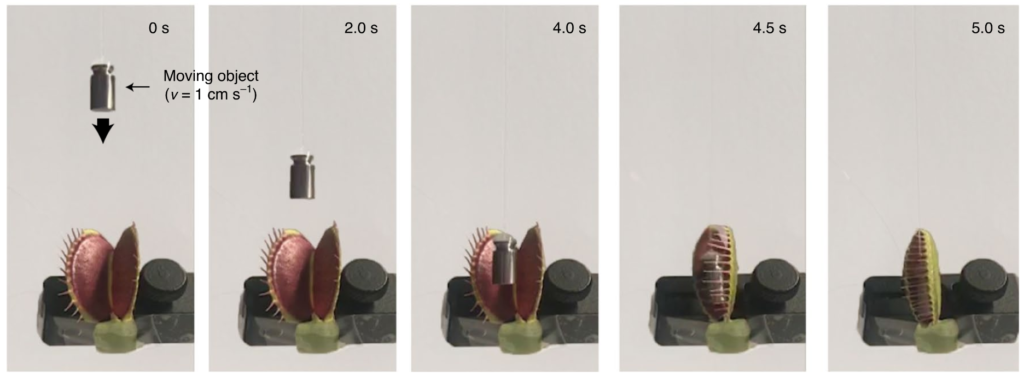- Three hours a week: Play time's over for China's young video gamers (Reuters)
- This Distro Combines Ubuntu with the CuteFish DE (OMG! Ubuntu!)
- Why pigeons mean peril for satellite broadband (BBC News)
- Blood money is fine with us, says GitLab: Vetting non-evil customers is 'time consuming, potentially distracting' (The Register)
- Revealed: Google made large contributions to climate change deniers (The Guardian)
- Lenovo X270 (Wikipedia)
- Debian Linux
- Asus VivoMini (Wikipedia)
- Is High Quality Software Worth the Cost? (Martin Fowler) — "I thus divide software quality attributes into external (such as the UI and defects) and internal (architecture). The distinction is that users and customers can see what makes a software product have high external quality, but cannot tell the difference between higher or lower internal quality."
- What the internet knows about you (Axios) — "The big picture: Finding personal information online is relatively easy; removing all of it is nearly impossible."
- Against Waldenponding II (ribbonfarm) — "Waldenponding is a search for meaning that is circumscribed by the what you might call the spiritual gravity field of an object or behavior held up as ineffably sacred. "
- Fragmented market
- Lack of special applications
- Lack of big name applications
- Lack of API and ABI stability
- Apple resurgence
- Microsoft aggressive response
- Piracy
- Red Hat mostly stayed away
- Canonical business model not working out
- Original device manufacturer support
GNOME <3
I’m a big fan of GNOME as well. Although configurability is important, starting from a basis of opinionated design leads to better results, I think.
There are people who're used to the traditional desktop, taskbar at the bottom, application menus, desktop icons and alike. There are minimalists who build their desktops essentially from scratch using tiling or floating window managers. Then there people who don't really care about what they're using and they tend to stick with whatever came with their system. I'm neither one of those (or at least, not anymore). I happen to agree with Gnome's opinionated desktop philosophy...Source: Gnome, the opinionated desktop environment | Dušan’s blog[…]
I keep coming back to Gnome and it never ceases to amaze how quickly I can start being productive in it. That’s what a desktop is supposed to do, get out of your way as much as possible while providing great features to facilitate that. It’s very much opinionated about its design and experience, but you shouldn’t fight it. Learn to embrace Gnome for what it is, a beautiful, if somewhat different desktop for developers and regular users alike.
Microcast #087 — Back in the game!
Overview
It's been a long time since the last microcast, but they're back! Comments? Questions? Add them below!
Show notes
Image: Erik McClean
Background music: Shimmers by Synth Soundscapes (aka Mentat)
Mediocrity is a hand-rail

🤖 Engineers Turned Living Venus Flytrap Into Cyborg Robotic Grabber — "The main purpose of this research was to find a way of creating robotic mechanisms able to pick up tiny, delicate objects without harming them. And this particular cyborg creation was able to do just that."
👀 First Look: Meet the New Linux Distro Inspired by the iPad — "This distro is designed to be a tablet first and a “laptop-lite” experience second. And I do mean “lite”; this is not trying to be a desktop Linux distro that runs tablet apps, but a tablet Linux distro that can run desktop ones – a distinction that’s worth keeping in mind."
🤯 DALL·E: Creating Images from Text — "GPT-3 showed that language can be used to instruct a large neural network to perform a variety of text generation tasks. Image GPT showed that the same type of neural network can also be used to generate images with high fidelity. We extend these findings to show that manipulating visual concepts through language is now within reach."
🔊 Surround sound from lightweight roll-to-roll printed loudspeaker paper — "The speaker track, including printed circuitry, weighs just 150 grams and consists of 90 percent conventional paper that can be printed in color on both sides."
👩💻 You can now run Linux on Apple M1 devices — "While Linux, and even Windows, were already usable on Apple Silicon thanks to virtualization, this is the first instance of a non-macOS operating system running natively on the hardware."
Quotation-as-title by Montesquieu. Image from top-linked post.
Microcast #078 — Values-based organisations
I've decided to post these microcasts, which I previously made available only through Patreon, here instead.
Microcasts focus on what I've been up to and thinking about, and also provide a way to answer questions from supporters and other readers/listeners!
This microcast covers ethics in decision-making for technology companies and (related!) some recent purchases I've made.
Show notes
What is no good for the hive is no good for the bee
So said Roman Emperor and Stoic philosopher Marcus Aurelius. In this article, I want to apply that to our use of technology as well as the stories we tell one another about that technology use.
Let's start with an excellent post by Nolan Lawson, who when I started using Twitter less actually deleted his account and went all-in on the Fediverse. He maintains a Mastodon web client called Pinafore, and is a clear-headed thinker on all things open. The post is called Tech veganism and sums up the problem I have with holier-than-thou open advocates:
I find that there’s a bit of a “let them eat cake” attitude among tech vegan boosters, because they often discount the sheer difficulty of all this stuff. (“Let them use Linux” could be a fitting refrain.) After all, they figured it out, so why can’t you? What, doesn’t everyone have a computer science degree and six years experience as a sysadmin?
To be a vegan, all you have to do is stop eating animal products. To be a tech vegan, you have to join an elite guild of tech wizards and master their secret arts. And even then, you’re probably sneaking a forbidden bite of Google or Apple every now and then.
Nolan Lawson
It's that second paragraph that's the killer for me. I'm pescetarian and probably about the equivalent of that, in Lawson's lingo, when it comes to my tech choices. I definitely agree with him that the conversation is already changing away from open source and free software to what Mark Zuckerberg (shudder) calls "time well spent":
I also suspect that tech veganism will begin to shift, if it hasn’t already. I think the focus will become less about open source vs closed source (the battle of the last decade) and more about digital well-being, especially in regards to privacy, addiction, and safety. So in this way, it may be less about switching from Windows to Linux and more about switching from Android to iOS, or from Facebook to more private channels like Discord and WhatsApp.
Nolan Lawson
This is reminiscent of Yancey Strickler's notion of 'dark forests'. I can definitely see more call for nuance around private and public spaces.
So much of this, though, depends on your worldview. Everyone likes the idea of 'freedom', but are we talking about 'freedom from' or 'freedom to'? How important are different types of freedom? Should all information be available to everyone? Where do rights start and responsibilities stop (and vice-versa)?
One thing I've found fascinating is how the world changes and debates get left behind. For example, the idea (and importance) of Linux on the desktop has been something that people have been discussing most of my adult life. At the same time, cloud computing has changed the game, with a lot of the data processing and heavy lifting being done by servers — most of which are powered by Linux!
Mark Shuttleworth, CEO of Canonical, the company behind Ubuntu Linux, said in a recent interview:
I think the bigger challenge has been that we haven't invented anything in the Linux that was like deeply, powerfully ahead of its time... if in the free software community we only allow ourselves to talk about things that look like something that already exists, then we're sort of defining ourselves as a series of forks and fragmentations.
Mark Shuttleworth
This is a problem that's wider than just software. Those of us who are left-leaning are more likely to let small ideological differences dilute our combined power. That affects everything from opposing Brexit, to getting people to switch to Linux. There's just too much noise, too many competing options.
Meanwhile, as the P2P Foundation notes, businesses swoop in and use open licenses to enclose the Commons:
[I]t is clear that these Commons have become an essential infrastructure without which the Internet could no longer function today (90% of the world’s servers run on Linux, 25% of websites use WordPress, etc.) But many of these projects suffer from maintenance and financing problems, because their development depends on communities whose means are unrelated to the size of the resources they make available to the whole world.
[...]
This situation corresponds to a form of tragedy of the Commons, but of a different nature from that which can strike material resources. Indeed, intangible resources, such as software or data, cannot by definition be over-exploited and they even increase in value as they are used more and more. But tragedy can strike the communities that participate in the development and maintenance of these digital commons. When the core of individual contributors shrinks and their strengths are exhausted, information resources lose quality and can eventually wither away.
P2P Foundation
So what should we do? One thing we've done with MoodleNet is to ensure that it has an AGPL license, one that Google really doesn't like. They state perfectly the reasons why we selected it:
The primary risk presented by AGPL is that any product or service that depends on AGPL-licensed code, or includes anything copied or derived from AGPL-licensed code, may be subject to the virality of the AGPL license. This viral effect requires that the complete corresponding source code of the product or service be released to the world under the AGPL license. This is triggered if the product or service can be accessed over a remote network interface, so it does not even require that the product or service is actually distributed.
Google
So, in other words, if you run a server with AGPL code, or create a project with source code derived from it, you must make that code available to others. To me, it has the same 'viral effect' as the Creative Commons BY-SA license.
As Benjamin "Mako" Hill points out in a recent keynote, we need to be a bit more wise when it comes to 'choosing a side'. Cory Doctorow, summarising Mako's keynote says:
[M]arkets discovered free software and turned it into "open source," figuring out how to create developer communities around software ("digital sharecropping") that lowered their costs and increased their quality. Then the companies used patents and DRM and restrictive terms of service to prevent users from having any freedom.
Mako says that this is usually termed "strategic openness," in which companies take a process that would, by default, be closed, and open the parts of it that make strategic sense for the firm. But really, this is "strategic closedness" -- projects that are born open are strategically enclosed by companies to allow them to harvest the bulk of the value created by these once-free systems.
[...]
Mako suggests that the time in which free software and open source could be uneasy bedfellows is over. Companies' perfection of digital sharecropping means that when they contribute to "free" projects, all the freedom will go to them, not the public.
Cory Doctorow
It's certainly an interesting time we live in, when the people who are pointing out all of the problems (the 'tech vegans') are seen as the problem, and the VC-backed companies as the disruptive champions of the people. Tech follows politics, though, I guess.
Also check out:
2018: the year of Linux on the desktop?
There’s a perpetual joke in open source circles that next year will be ‘the year of Linux on the desktop’. GNU/Linux, of course, is an operating system that comes in a range of ‘distributions’ (I use Ubuntu and Elementary OS on a range of devices).
In this article, the author outlines 10 reasons that Linux isn’t used by more people. I think he’s spot-on:
That being said, I'm all-in on Linux now. I can't imagine going back to the vendor lock-in provided by macOS, Windows, or Chrome OS.
Source: Christian F.K. Schaller


